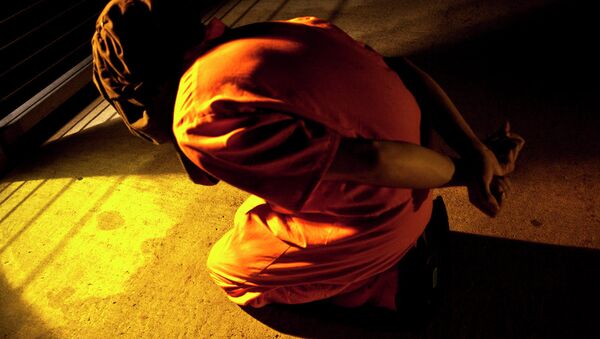Following the attacks on the World Trade Centre and the Pentagon on September 11, 2001, US President George W. Bush declared a ‘War on Terror’. Since then many have claimed that the CIA used the ‘war’ to justify the secret torture of suspects using extreme methods.
Head of the US Senate Intelligence Committee Dianne Feinstein began an investigation into the claims in 2009, but the report's publication has been held up for months by a simmering row with the CIA over which parts of the report could be released publicly.
It’s been reported for years that the CIA allegedly carried out so-called ‘extraordinary rendition’ – effectively kidnapping – of suspects on foreign soil and took them to ‘black sites’ in other countries, subjecting them to sleep deprivation, threats of sexual humiliation, slapping and waterboarding.
CIA and Senate Dispute Torture Intelligence Claims
The report says that senior Al-Qaeda member Abdel Rahman al Nashiri, believed to have masterminded the bombing of the USS Cole in 2000, was threatened with an electric drill. Khalid Sheikh Mohammed, the alleged 9/11 mastermind and Al-Qaeda’s ‘travel agent’, Abu Zubaydah, were both alleged to have been waterboarded.
These intelligence gathering tactics used by the CIA, according to the committee report, went beyond anything authorised by the White House and the Bush administration.
However the committee’s central conclusion – that none of the harsh techniques produced any useful intelligence that might not have been gleaned by other, less extreme, methods — has proven to be the most controversial. The CIA and intelligence sources completely disagree, saying the work of the agency was a critical part of the ‘War on Terror’ and that the programme was authorised by President George W. Bush.
The report – which exposes what many human rights groups have been saying for years – confirms the widespread use of extraordinary rendition and torture methods to exact ‘evidence’. However, much of that evidence is inadmissible in a court of law because it was gathered under duress.
British Involvement Initially Denied
The publication of the report will bring further calls for an examination of any British role in extraordinary rendition and extreme intelligence-gathering methods. In 2002, the Foreign Secretary David Miliband was forced to admit to parliament that two US rendition flights had landed on Diego Garcia, a US base on British Indian Ocean Territory in 2002.
A report by the UK House of Commons Intelligence and Security Committee in 2007 concluded that Britain was not complicit in rendition, only to be flatly contradicted by a High Court ruling in the Binyam Mohamed case the following year. Mohamed is an Ethiopian national and United Kingdom resident, detained as a suspected enemy combatant by the US Government in Guantanamo Bay prison between 2004 and 2009 without charges. He was arrested in Pakistan and transported first to Morocco under the US extraordinary rendition programme, where he claimed to have been interrogated under torture.
The USA dropped charges against him, and eventually released him. He then took legal action against the British Government in 2009 for collusion by MI5 and MI6 in his torture by the United States.
In February 2010, the UK Court of Appeal ruled that he had been subjected to "cruel, inhuman and degrading treatment by the United States authorities" in which the British Intelligence services had been complicit. The government awarded him £1 million compensation in settlement in 2011.
The publication of the report into torture by the CIA may not be the closing chapter in the story of unlawful practices carried out in the years following the September 11, 2001 attacks. Amid fears of possible reprisals the United States has put its diplomatic missions and military sites across the globe on high security alert. Britain may be facing tough questions about its role too.

